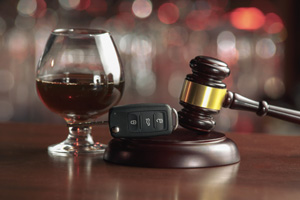
Driving under the influence (DUI) is a serious offense in Pennsylvania, carrying significant legal consequences. Understanding the complexities of DUI laws can be daunting, especially when facing charges that could impact your future. Pennsylvania’s DUI laws aim to deter impaired driving and ensure public safety by enforcing strict penalties on those found guilty of such offenses.
At Rubin, Glickman, Steinberg & Gifford, P.C., we understand the challenges and uncertainties you may face when dealing with DUI charges. Our dedicated legal team is here to provide you with the guidance and representation needed to navigate these complex laws. In this comprehensive guide, we will explore the key aspects of Pennsylvania DUI laws, including the legal limits, penalties, and the process of dealing with a DUI charge.
Understanding Legal Limits and Testing
In Pennsylvania, DUI charges are primarily based on Blood Alcohol Concentration (BAC) levels. The legal BAC limit for drivers aged 21 and over is 0.08%. For commercial drivers, the limit is reduced to 0.04%, while drivers under the age of 21 face a stricter limit of 0.02%. These thresholds are designed to minimize the risk of impaired driving and enhance road safety.
Law enforcement officers may employ various testing methods to determine a driver’s BAC. These include breathalyzers, blood tests, and urine tests. Breathalyzer tests are commonly used right after traffic stops, providing immediate results. However, blood and urine tests, often conducted at medical facilities, may be required for more accurate BAC measurement or in cases of suspected drug impairment.
Refusing to submit to BAC testing can lead to severe consequences under Pennsylvania’s implied consent laws. By holding a driver’s license, you have implicitly agreed to comply with BAC testing if lawfully requested by an officer. Refusal results in an automatic license suspension, regardless of whether you are ultimately convicted of DUI.
Penalties for DUI Convictions
The penalties for DUI convictions in Pennsylvania vary based on the offender’s BAC level, prior offenses, and whether the DUI resulted in an accident or injuries. First-time offenders with a BAC of 0.08% to 0.099% may face probation, a fine, and mandatory alcohol highway safety school. Higher BAC levels or repeat offenses lead to harsher penalties, including longer license suspensions, larger fines, and imprisonment.
A second DUI offense can result in a 12-18 month license suspension, up to six months in jail, and significant fines. For third or subsequent offenses, penalties increase dramatically, potentially involving lengthy prison sentences, extended license suspensions, and hefty fines. Aggravated factors, such as causing injury or property damage, further intensify the consequences.
Moreover, Pennsylvania courts may impose additional penalties, such as mandatory installation of an ignition interlock device (IID) for repeat offenders. An IID requires the driver to pass a breathalyzer test before starting the vehicle, effectively preventing those with a history of DUI from driving under the influence again.
Navigating the Legal Process
When charged with a DUI in Pennsylvania, it is crucial to understand the legal process and your rights. The process typically begins with the initial traffic stop, followed by arrest and arraignment. During arraignment, the charges are formally presented, and you may enter a plea. The court then schedules pre-trial hearings to address motions and evidence.
At trial, the prosecution must prove beyond a reasonable doubt that you were driving under the influence. Defense strategies may include challenging the validity of the traffic stop, the accuracy of BAC testing, or the procedures followed during the arrest. An effective defense can potentially lead to reduced charges or even dismissal.
In addition to court proceedings, Pennsylvania offers alternative programs for eligible DUI offenders. The Accelerated Rehabilitative Disposition (ARD) program is designed for first-time offenders, allowing them to avoid a criminal record by completing a period of probation, community service, and alcohol education. Successful completion of ARD results in expungement of the DUI charge, providing a second chance for those committed to rehabilitation.
How Can Rubin, Glickman, Steinberg & Gifford, P.C. Help You?
Facing a DUI charge can be overwhelming, but you do not have to navigate this challenging time alone. At Rubin, Glickman, Steinberg & Gifford, P.C., we have extensive experience defending clients against DUI charges. Our legal team understands the intricacies of Pennsylvania DUI laws and is dedicated to providing you with the best possible defense.
If you or a loved one is facing DUI charges, contact us at (215) 822-7575 or visit our contact form. Let Rubin, Glickman, Steinberg & Gifford, P.C. guide you through this difficult time and help you secure the best possible resolution for your case.

Rubin, Glickman, Steinberg & Gifford P.C.
Pennsylvania Attorney's
September 25, 2024








